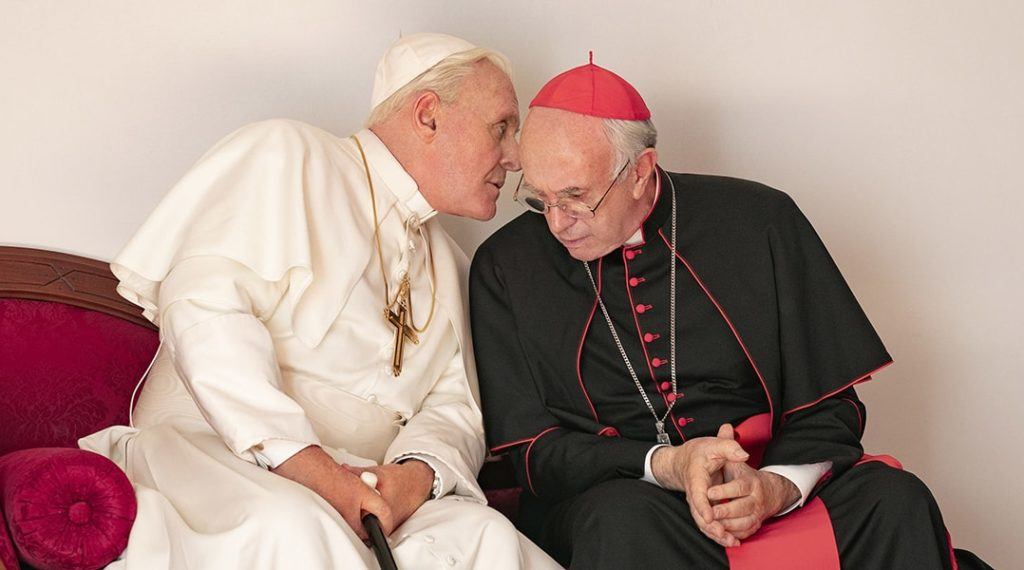The Two Popes

Anthony Hopkins and Jonathan Pryce star in THE TWO POPES. (Photo: Netflix)
In 2013, Pope Benedict wanted to resign the papacy because of his failing health, something no pontiff had done in more than 500 years.
At the same time, he knew the Catholic Church didn’t need more controversy, which brings us to The Two Popes, a captivating drama that takes us behind the Vatican’s sacred closed doors.
This incisive, lightly fictionalized examination of an unprecedented shakeup of church leadership and traditions benefits from sterling performances by Anthony Hopkins and Jonathan Pryce in the title roles, even if it feels too much like an extended confession during its muddled stretches.
Benedict (Hopkins) knows that in order to ensure a smooth transition, he must hand-pick his successor, even if that means reaching out to Cardinal Bergoglio (Pryce), whose liberal views rarely mesh with his own.
Bergoglio is summoned to the pope’s summer residence for a wide-ranging weekend chat to unveil his plan. Sometimes it’s cordial. More often, it’s strained as they muse about issues facing the church and each other.
They clash about responding to widespread sexual-abuse scandal among Catholic priests. “We built walls around us, and all the while, the real danger was inside,” Bergoglio opines during a particularly tense philosophical exchange.
Later, Bergogilo opens up about his guilt and lingering emotional scars from political turmoil in his Argentinian homeland during the 1970s that prompted a crisis of faith.
When you’re not admiring the striking imagery and the vibrant re-creations of Vatican landmarks, you can appreciate the committed portrayals of two great actors finding both strength and vulnerability in such iconic true-life figures.
The multilingual screenplay by Anthony McCarten (Darkest Hour) is richly textured yet also playfully subversive as it speculates on what took place behind the scenes.
McCarten and Brazilian director Fernando Meirelles (City of God) adeptly balance the density of the film’s introspective theological debate with a lighthearted sense of mischief between its protagonists, such as an amusing sequence in which they share a pizza and talk soccer.
Much more talk than action. The Two Popes is deliberately paced but remains consistently compelling regardless of your ideological background.
It’s a deeply spiritual film that also maintains an even-handed perspective — mostly sympathetic, as it turns out — allowing viewers to challenge their own beliefs. After all, any effort to put aside differences for the common good teaches a timely lesson.
Rated PG-13, 126 minutes.